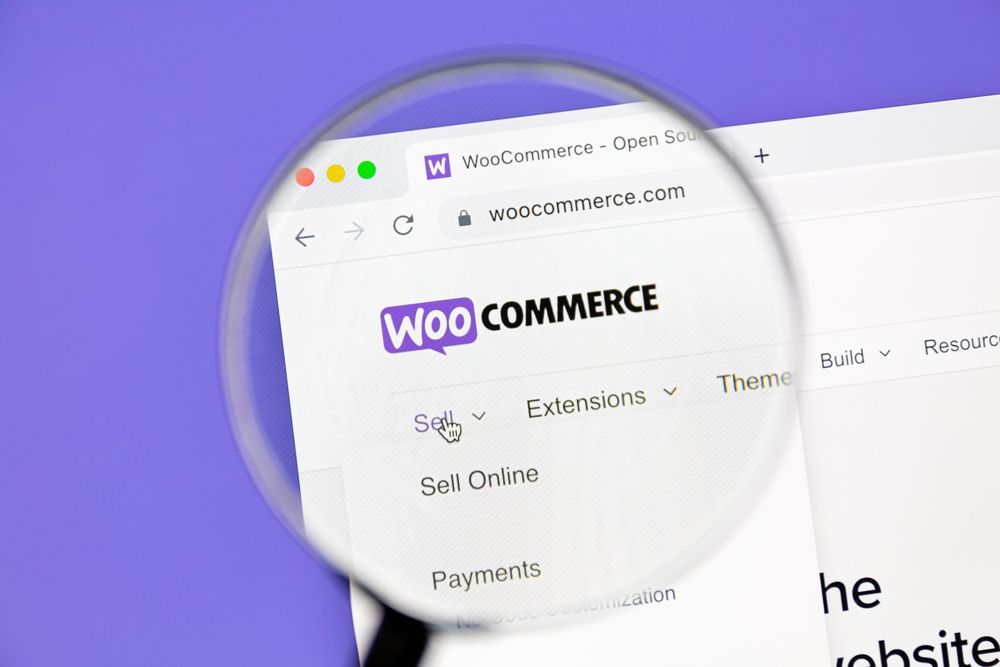
So, you’re thinking about setting up an online shop. You’ve heard of WordPress, but is WordPress good for ecommerce? After all, it’s not exactly known for online stores, right? That’s where things get interesting. WordPress itself isn’t an ecommerce platform.
It’s a powerful content management system (CMS) that, with the right tools, can be molded to fit your needs — including selling online. This is where WooCommerce, a WordPress plugin, enters the scene.
WordPress & WooCommerce: A Powerful Ecommerce Duo
Think of WordPress as the foundation of your house, and WooCommerce as the toolkit that transforms it into a bustling shop. This open-source plugin gives you the power to list products, manage inventory, handle payments, and much more. You’ll be able to do all of this within the familiar WordPress environment.
Why Choose WordPress for Your Ecommerce Venture?
Let’s talk about why WordPress is a good option for many online sellers.
1. Cost-Effective & Flexible
WordPress is free to download and use. You can customize it without spending a dime on the software itself. You will, however, need to factor in expenses for WordPress hosting, a domain name, and potentially some premium themes or plugins. However, compared to some other ecommerce platforms, your startup costs are still relatively low.
WooCommerce Payments, for example, charge a standard 2.9% + $0.30 per transaction for ecommerce businesses based in the US.
2. It’s Your Shop – You Call the Shots
With a WordPress website, you have complete control. This means you have complete control over your customer data, your design, your content, and how you run your business. You’ll never have to worry about a third-party platform dictating your terms or suddenly shutting you down.
3. SEO-Friendly From the Get-Go
WordPress is built with SEO in mind. The CMS platform itself is structured for search engine visibility. With plugins like Yoast SEO, you can fine-tune your website content, optimize product pages for ecommerce SEO, and improve your chances of ranking higher on search results pages. Hire an agency like SEO Locale that offers ecommerce SEO services to get you ranking on Google.
4. A Theme for Every Style
Want a sleek, minimalist shop or a vibrant, colorful storefront? WordPress offers thousands of themes, both free and premium. You can easily add one of these themes so you can customize the look and feel of your online store to match your brand.
There are over 9,000 themes to choose from, with 1,200 geared specifically towards online selling. You’ll have no shortage of options to make your ecommerce store unique.
5. A Plugin for (Almost) Everything
Need to integrate social media sharing? Add customer reviews? Implement email marketing? There’s probably a plugin for that. The extensive WordPress plugin library gives you the flexibility to extend your store’s functionalities way beyond the basics.
Facing the Challenges: The Downsides to Consider
Now for a dose of reality. While WordPress is undeniably awesome for many, there are a few bumps to be aware of:
1. It’s DIY Time (Unless You Outsource)
WordPress provides the tools but requires you, the store owner, to handle setup, maintenance, security issues, and regular backups. If you’re not tech-savvy or prefer a more hands-off approach, you’ll likely need to hire a developer, especially as your site grows more complex. Hiring a developer means ongoing costs.
2. Plugin Overload Can Lead to Trouble
As wonderful as plugins are, relying on too many can make your website slow and clunky. Having a slow website is a big no-no for user experience and SEO. It’s essential to choose high-quality plugins from reputable developers and be mindful of how many your site can handle.
Plus, you’re responsible for keeping them updated to avoid security risks to your shopping cart and other areas of your store that contain sensitive information. If your ecommerce business takes payments directly on your website, then you need to be extra precautious about security.
3. Speaking of Security…
WordPress’ popularity makes it a target for hackers. Keeping your ecommerce site secure is your responsibility, not WordPress’s. This involves regular updates, strong passwords, installing security plugins, and potentially additional security measures such as SSL certificates.
WordFence, a popular WordPress security plugin, stopped a whopping 86 billion unauthorized login attempts in 2021. You want to especially make sure your website is secure if you’re handling sensitive customer information. You’ve got to be proactive when it comes to cybersecurity.
Is WordPress the Right Choice for Your Online Empire?
Ultimately, the question of “Is WordPress good for ecommerce?” depends on your specific needs, technical skills, and long-term goals. Consider these scenarios:
| WordPress Might Be Your Ecommerce Soulmate IF… | You Might Want to Reconsider WordPress IF… |
|---|---|
| You’re on a tight budget and comfortable (or willing to learn) the technical basics of WordPress | You need an all-in-one solution with minimal setup and technical know-how. Hosted platforms like Shopify ecommerce offer convenience (at a higher price tag). |
| You crave total control over your website design, functionality, and data. | You prefer simplicity and want a platform where most features are already built-in and security is handled for you. |
| You anticipate your business growing and evolving, and want the flexibility to adapt your online store accordingly | You’re wary of handling website maintenance and updates yourself (or lack the resources to hire a developer) |
WordPress: An Ecommerce Powerhouse in Disguise
WordPress, with the addition of WooCommerce and a sprinkle of your own efforts (or the help of a skilled developer), can be a formidable ecommerce platform. WordPress offers an impressive blend of affordability, customization options, and a massive ecosystem of resources and support.
While there’s definitely a learning curve, especially for those new to building ecommerce websites, mastering the basics can empower you to create an online store tailored to your vision. If you are new to creating websites, you may want to consider hiring a web design agency to build your ecommerce site for you.
So, is WordPress good for ecommerce? As with many things, the answer is nuanced: it depends. WordPress, powered by WooCommerce, gives you immense power but expects you to be hands-on. This self-hosted platform thrives on your drive to learn, build, and refine, especially as your ecommerce business takes off.
While WordPress doesn’t charge transaction fees itself, you will incur them from your payment gateway such as Stripe or PayPal. If you don’t want to handle accepting payments, security, backups, and all the other things that go into managing an ecommerce business, then a platform like Shopify might be a better choice for you. You can always hire SEO Locale, we can build WordPress sites.
But hey, isn’t that the spirit of any entrepreneurial journey? There are many ways to sell products online, and choosing the right platform depends on your specific business needs.












